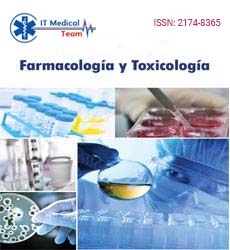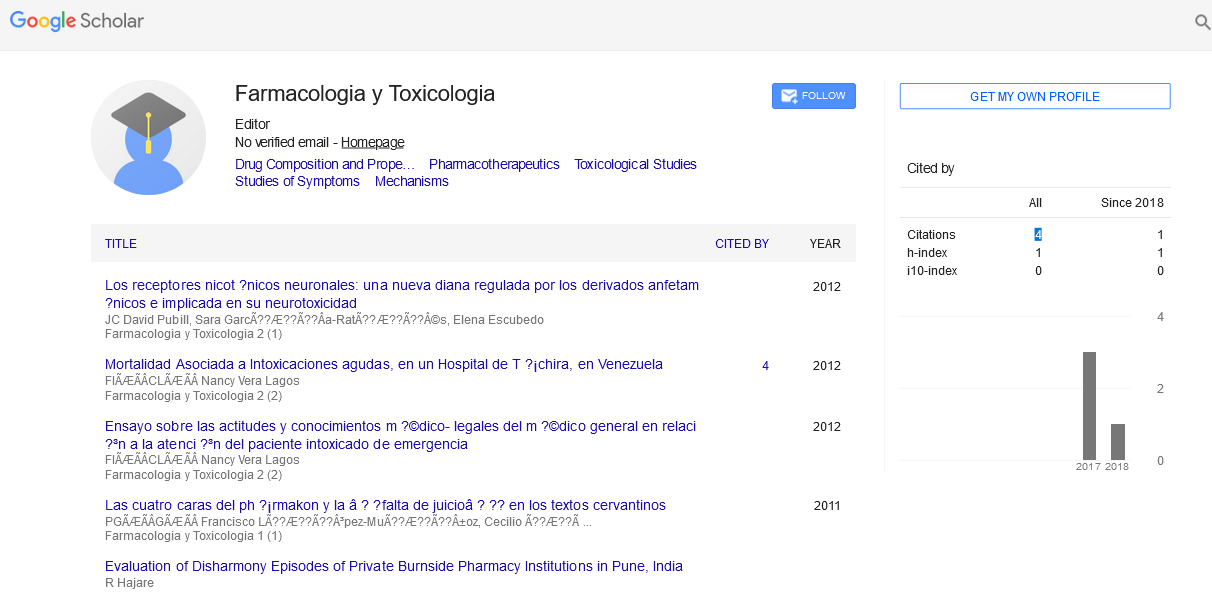Perspective - (2023) Volume 13, Issue 6
Studies of symptoms in pharmacological research: Understanding the complex relationship
Elbieta Pamua*
Department of Pharmacology, University of Qarsaw, Warsaw, Poland
*Correspondence:
Elbieta Pamua, Department of Pharmacology, University of Qarsaw, Warsaw,
Poland,
Email:
Received: 30-Oct-2023, Manuscript No. ipft-23-14173;
Editor assigned: 02-Nov-2023, Pre QC No. P-14173;
Reviewed: 16-Nov-2023, QC No. Q-14173;
Revised: 05-Dec-2023, Manuscript No. R-14173;
Published:
14-Dec-2023, DOI: -
Introduction
Pharmacological studies play a crucial role in the
development and assessment of drugs and medications. These
studies are designed to determine the efficacy and safety of
drugs, evaluate their potential side effects and understand
their mechanisms of action. In the pursuit of these goals,
researchers often delve into the realm of symptoms, both
desired therapeutic effects and unwanted adverse reactions.
This exploration is vital for the development of effective
medications and the overall improvement of healthcare.
We will examine the significance of studying symptoms in
pharmacological research, how they are assessed and their
broader implications for the field of medicine.
Description
The importance of studying symptoms
Ensuring drug efficacy: On e of th e pr imary re asons fo r
studying symptoms in pharmacological research is to assess
the effectiveness of a drug. Symptoms are the tangible
expressions of a disease or condition and evaluating how well
a drug alleviates these symptoms is a critical component of
any clinical trial. For example, in an antihypertensive drug
trial, researchers measure the reduction in symptoms such
as high blood pressure to determine the drug's efficacy.
Studying symptoms helps identify whether a medication is
effective and, if so, to what extent.
Identifying adverse effects: While alleviating symptoms
is essential, pharmacological studies must also identify
and understand the adverse effects of drugs. Undesirable
symptoms are a common concern when using medications
and it is crucial to assess these symptoms to determine if they
are a result of the drug or other factors. Careful symptom
evaluation can lead to the modification or discontinuation
of potentially harmful drugs, ensuring patient safety.
Optimizing dosage and administration: Studying
symptoms allows researchers to fine-tune drug dosages
and administration routes. For instance, if a patient
experiences digestive symptoms, like nausea or diarrhea,
due to a drug, adjusting the dosage or recommending a
different f orm o f administration ( e.g., a coated t ablet o r
intravenous injection) may help reduce these symptoms
while maintaining the drug's therapeutic effects.
Assessing symptoms in pharmacological
research
Subjective vs. objective measures: Assessing symptoms in
pharmacological research involves a combination of
subjective and objective measures. Subjective measures rely
on patients' self-reports, such as pain scales, quality of life
assessments and questionnaires. These measures capture the
patient's perspective and the impact of symptoms on their
daily life.
Objective measures, on the other hand, include
quantifiable data like blood pressure, heart rate, laboratory
results or imaging studies. These measures are essential for
providing an objective assessment of a drug's impact on
physiological parameters.
Clinical evaluation: Clinical evaluation is a cornerstone of
symptom assessment in pharmacological research. Highly
trained healthcare professionals examine and interpret
symptoms in a systematic manner. Clinical evaluation
includes history-taking, physical examinations and the use
of standardized assessment tools.
Patient-Reported Outcomes (PROs): Patient-reported
outcomes are increasingly significant in pharmacological
research. These are measurements based on what patients
perceive and report about their own health. PROs are used
to assess symptoms such as pain, fatigue and emotional
well-being, which are often challenging to quantify
objectively.
Biomarkers: Biomarkers are objective measures that can be
used to assess symptoms indirectly. For example, in cancer
research, a decrease in tumor size (measured by imaging
techniques) can be a surrogate biomarker for symptom
improvement. Similarly, biomarkers like C-reactive protein
levels can indicate reduced inflammation.
The broader implications
Personalized medicine: The study of symptoms in
pharmacological research contributes to the development
of personalized medicine. By understanding how different
individuals respond to drugs and their associated
symptoms, healthcare providers can tailor treatments to a
patient's unique characteristics, such as genetics, lifestyle
and preferences. This approach maximizes treatment
effectiveness while minimizing side effects.
Early detection of adverse events: Thorough symptom
assessment can lead to the early detection of adverse events. This is especially crucial in drug development and
post-marketing surveillance. Identifying and addressing
adverse effects promptly can prevent harm to patients and
contribute to the safer use of medications.
Improved drug development: Pharmacological studies
that focus on symptoms aid in the development of better
drugs. By analyzing symptom data, researchers can identify
opportunities for drug innovation and optimization. This
iterative process leads to the creation of safer, more effective
medications.
Challenges in studying symptoms
Subjectivity and variability: Symptom assessment can
be challenging due to the subjectivity and variability of
symptoms. What one patient describes as "mild pain"
might be perceived as "severe discomfort" by another.
Additionally, symptoms may vary over time, making it
challenging to capture their true impact.
Placebo effects: In clinical trials, the placebo effect can
confound symptom assessment. Some patients may
experience symptom improvement merely due to their
belief in the drug's efficacy, even if they receive a placebo.
Distinguishing between genuine drug effects and placebo
effects is a complex task.
Conclusion
Symptoms are the touchpoints between patients and
pharmacological research. The study of symptoms in this
field is essential for determining the efficacy and safety of
drugs, understanding mechanisms of action and optimizing
treatments. The assessment of symptoms encompasses both
subjective and objective measures, with technology playing
an increasingly vital role in data collection. This research
has broader implications for personalized medicine, early
detection of adverse events, improved drug development
and patient-centered care.
Despite the challenges posed by subjectivity, placebo
effects and resource limitations, the study of symptoms
in pharmacological research remains critical for the
advancement of medicine and the well-being of patients. By
continuously refining our methods of symptom assessment
and analysis, we can ensure that drugs are developed,
evaluated and used in a manner that maximizes their
benefits while minimizing harm, ultimately improving the
quality of healthcare worldwide.





